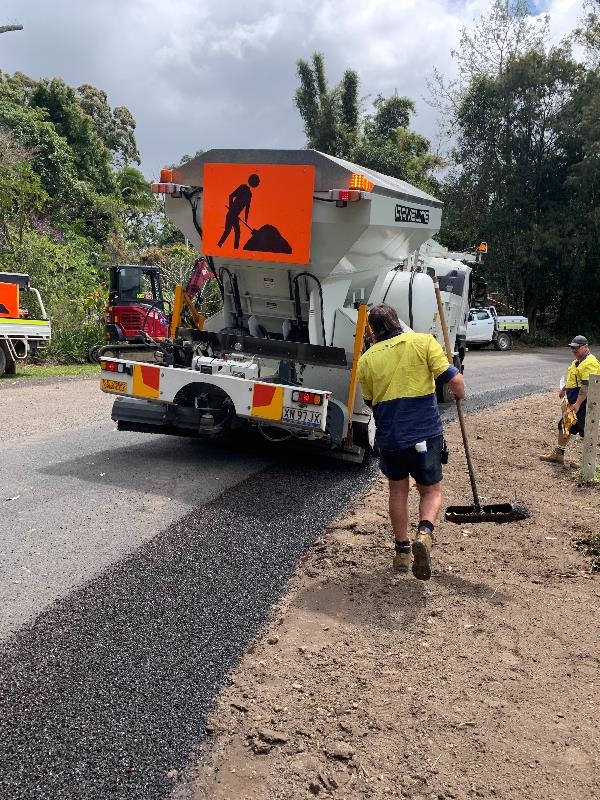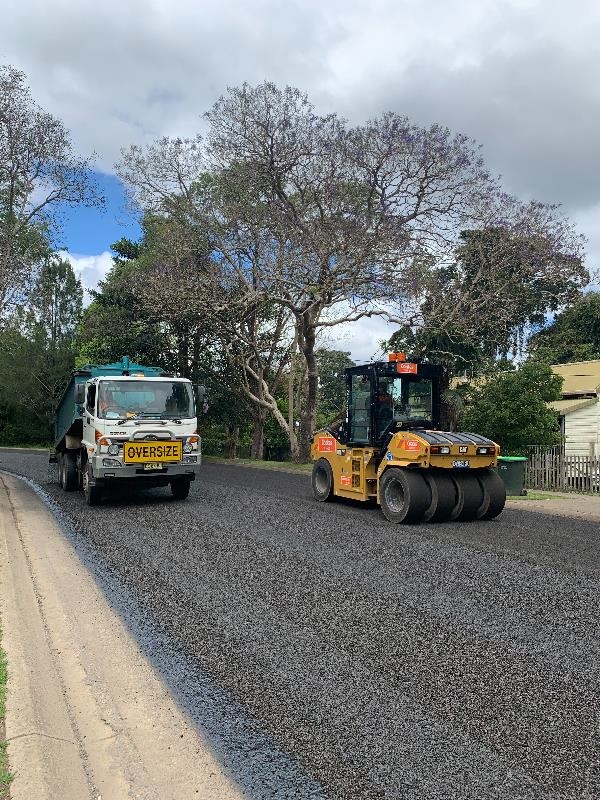Each year, council conducts its re-seal program on various identified roads around our shire. We will reseal your roads during the warmer months. Works generally start in October and are completed by March.
Most of Council’s roads are surfaced with a bituminous spray seal. The bitumen component becomes brittle over time and because of this, small cracks appear, surface stones are lost, and water seeps into the underlying road pavement causing potholes and soft spots.
Resealing is a common preventative road maintenance technique where a new coat of bitumen and stone/ aggregate is applied over an existing surface. The road resealing program helps to keep maintenance costs down, extend the life of the underlying road pavement and minimise expensive pavement rehabilitation work.
It generally only takes one to two days to reseal a road, but the benefits are long-lasting. Resealing extends the life of local roads by around ten years by:
- Increased surface texture for better tyre friction
- Sealing cracks in the existing surface to protect the pavement beneath from moisture, therefore minimising pavement failures and potholes
- Preventing the existing surface from further oxidisation (UV degradation)
- Maintaining the surface to a good condition
Preparation works conducted prior to the resealing program can include replacing damaged kerb and channel and drainage pits, repairing failed or failing areas of road pavement and addressing the shape of the road to ensure water runs off the pavement surface. Bitumen is then sprayed on the road to form the thin waterproof membrane, it is then covered with a thin layer of aggregate. The aggregate is rolled into the bitumen to protect the bitumen and form a skid resistant surface.
Why don’t you fix potholes instead?
A common concern from residents about the resealing program is that the roads on the list do not need fixing and that the money could be better spent elsewhere. While there are a number of roads around the local government area that have been identified for rehabilitation, this is a much more costly and time-consuming process. The resealing program is a preventative maintenance technique utilised to maintain the useful service life of road infrastructure. It is very effective in reducing ongoing maintenance and ensuring longevity of the surface. Without preventative maintenance like resealing, the life of the road is greatly reduced, and it’s more likely to develop potholes and other defects.
Parking is generally unavailable during the reseal process, although roads can often be open to local traffic needing to access driveways. To assist Council with undertaking reseal works, it is recommended residents make alternative parking arrangements and park off the designated street.
To view Councils 2023/2024 Heavy Patching and Resealing ‐ Complete, click here, Heavy-Patching-and-Resealing-FY2324-Complete.pdf(PDF, 102KB)

